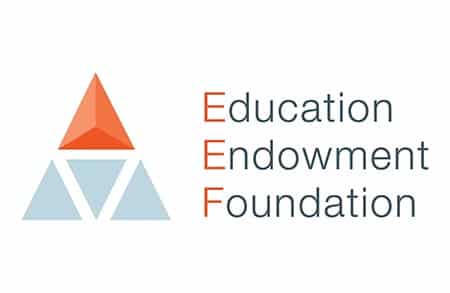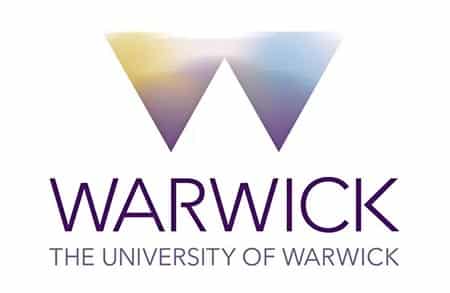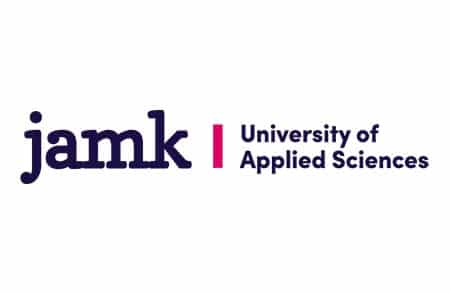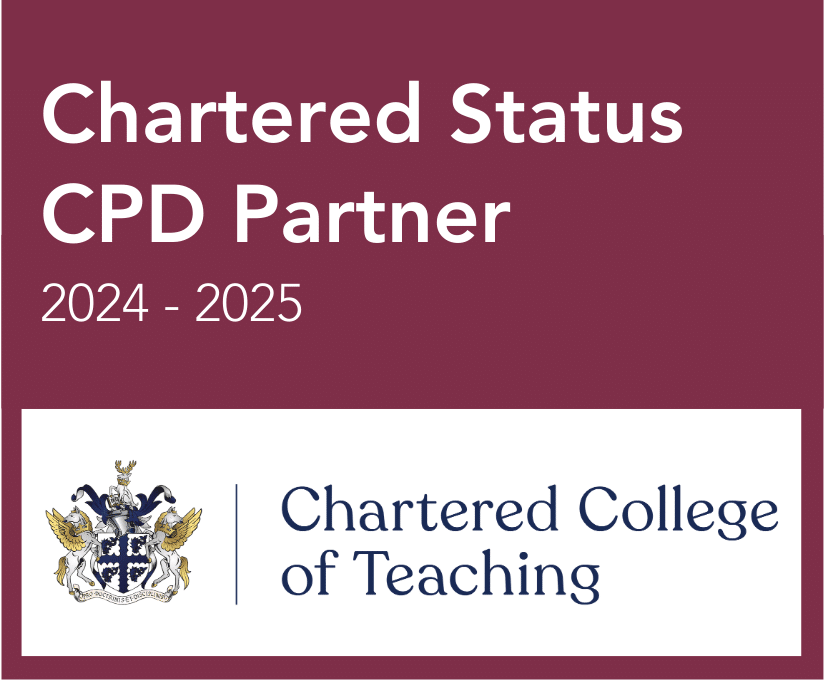Evidence-based Professional Development
The latest theory, strategies and information from independent research studies
Featured Research
Video-based teacher coaching improves student achievement by an equivalent 2+ of months worth of learning
Conducted by Mathematica Policy Research, the study asked the question: does video-based teacher coaching have an impact on student learning?
Teachers were provided with coaching through Teachstone’s MyTeachingPartner (MPT) programme and IRIS Connect’s Discovery Kit camera system was selected as the technology to be used.
The study was one of the largest experimental studies in education involving 100 schools, 353 teachers and 8,906 students. It is now clear and in black and white – video-based coaching improves student achievement.
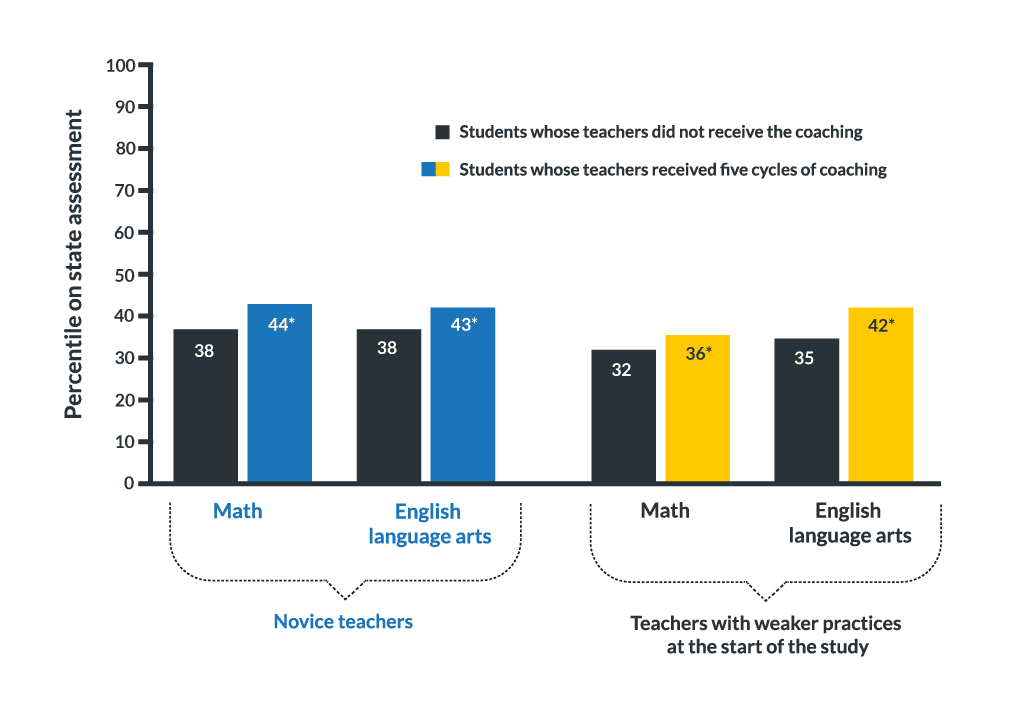
What does research say about effective professional development
General PD
In 2021, the Education Endowment Foundation (EEF) published comprehensive guidance on what makes professional development effective, based on a meta-analysis of over 100 educational research papers. They identified 14 “mechanisms”: empirically-evidenced general principles about how teachers learn and change their practice. These mechanisms are the building blocks of effective professional development. PD programs that had none of these mechanisms had zero effect. When they had all 14, the PD programs had a significant impact on student progress. Organised into four different groups, mechanisms are:
A) Building Knowledge
a) Managing cognitive load
b) Revisiting prior learning
B) Motivating Teachers
a) Setting and agreeing on goals
b) Presenting information from a credible source
c) Providing affirmation and reinforcement after progress
C) Developing Teaching Technique
a) Instructing teachers on how to perform a technique
b) Arranging social support
c) Modelling the technique
d) Monitoring and providing feedback
e) Rehearsing the technique
D) Embedding Practice
a) Providing prompts and cues
b) Prompting action planning
c) Encouraging monitoring
d) Prompting context-specific repetition
When we first started working with schools, over a decade ago, we would routinely encounter schools that had experienced disappointing outcomes of their professional learning endeavours. Poor design had led to repeated failures and frustrated school leaders had resorted to pulling harder on the levers of policy and monitoring to “drive change”. Teachers, in turn, had become entrenched in cynical attitudes towards “yet another initiative” and pushed back on crude monitoring. These two responses often fed upon one another, creating a toxic learning culture where no progress was possible.
It’s important to acknowledge the strides made in schools since then. The last few years have seen a sea change in schools’ approaches to CPD. They’ve largely moved away from ineffective, summative observation and one-off training sessions that aren’t part of a wider initiative. There is broad recognition of CPD as a process requiring ongoing support and skill development outside of designated INSET time. The focus of professional development initiatives is now largely evidence-informed and schools that manage to successfully integrate as many of the mechanisms outlined above as possible as part of their PD provision, not only help their teachers to become the best teachers they can be and increase the quality of teaching, but ultimately improve pupils’ learning success and therefore their chances for a promising career.
IRIS Connect stems from research, and at its core, was developed to bridge the gap between theory and practice. Our consultants work closely with PD leads and their SLT to create a positive professional learning culture that allows teachers to collaboratively develop their practice. Through our video-enabled online platform they can effectively reflect on their teaching and work together with peers, coaches and mentors to implement any learning from any PD initiative into their classrooms. Furthermore, your teachers can also access evidence-based knowledge around core classroom strategies directly on our platform whenever they need it, including bitesize theory with video exemplifications and tangible take away strategies.
More research about PD in general:
- Teacher Development Trust (2015) Developing great teaching
- Fred Korthagen (2017) Inconvenient truths about teacher learning
- Rebecca Allen and Sam Sims (2018) The teacher gap
- Joyce & Showers (2002)
Video based PD
In 2022, the US Institute for Education Sciences published a “Study of Teacher Coaching Based on Classroom Videos: Impacts on Student Achievement and Teachers’ Practices”. The purpose was to answer the question: does video-based teacher coaching have an impact on student learning?
Participating teachers were provided with individualised coaching over the school year through Teachstone’s MyTeachingPartner (MTP) program. MTP is a research-based, intensive coaching programme focused on improving teacher-child interactions using videos of instruction for reflection, practice, and feedback. Teachers used IRIS Connect’s video technology to record and upload their classroom videos for their coaches to review and provide feedback.
The participating schools were randomly assigned into three groups: one that received five highly structured cycles of focused professional coaching during a single school year, one that received eight cycles, and a control group that continued with their “business as usual” professional development. The research found that five cycles of video-based coaching enabled by IRIS Connect and Teachstone improved student achievement. The students of these teachers had higher test scores in English language arts at the end of the school year than students taught by teachers who did not receive the coaching. Student achievement of novice teachers that received video coaching was even higher – the equivalent of an additional two and half months of instruction over the school year.
Prior research demonstrated that teachers participating in MTP 1-on-1 video coaching engage in more effective interactions with students, which in turn increases student learning and development. The study described above demonstrates that the same results can be achieved with video coaching. However, video coaching has some significant benefits. First, it provided more flexibility for the timing of observations and enabled geographically remote coaches to observe teachers that would be too far away to visit in person. It not only makes coaching more readily available, it’s also considerably less expensive. In fact, video coaching is also less expensive than other interventions known to impact student achievement such as reducing class sizes, paying teachers extra for strong performance, and providing incentives for high-performing teachers to transfer to schools with low test scores.
The researchers also noted that video-based coaching provided several unique benefits compared to in-person coaching. The MTP web platform enabled coaches to edit short clips, provide written questions to help teachers reflect on these clips, and helped teachers to reflect on aspects of their teaching they may not otherwise have noticed.
IRIS Connect provides a platform that enables all of the experiences that make professional learning effective; the most important of which is coaching. Often, the capacity and resources for coaching programmes come from within the education organisation. Our platform provides all of the tools needed for a school to create and administer a complete coaching program including: knowledge resources, observation rubrics, course-making and assessment, video-conferencing, and annotated feedback of videos.
But what if a school doesn’t have an existing coaching program? Many schools don’t have the staff, capacity, and expertise to administer their own. Teachstone’s MyTeachingPartner (MTP) program helps to address this challenge by providing a research-based coaching program run by highly skilled coaches, enabling schools to outsource their coaching needs. MTP aims to increase student learning and development through improved teacher–student interactions. Through the program, middle and high school teachers access a video library featuring examples of high-quality interactions and receive individualised, web-based coaching approximately twice per month during the school year. MTP-S uses the secondary school version of the Classroom Assessment Scoring System®–Secondary (CLASS-S) to define and observe effective teaching practices. MTP is listed on the Institute for Education Science’s “What Works Clearinghous”, a trusted source of scientific evidence on education programs, products, practices, and policies. IRIS Connect empowers and enables coaching programs like MTP, providing a platform where expert coaches can observe, analyze, and provide feedback to teachers in schools anywhere in the world.
More research about video based PD:
- Education Endowment Foundation (2020) Remote Professional Development
- University of Birmingham (2020) Teacher Education Modality Rapid Review
- JAMK University of Applied Sciences (2020) Video-supported Collaborative Learning
Impact of IRIS Connect
A study was undertaken by the University of Tartu in an attempt to measure the experiences of teacher education students with recording their teaching via video. The study aims to find out teacher education students’ opinions about recording their teaching and analysing it, to describe the experiences of recording and analysing the videos, and to systematize their main areas of learning and development.
Key findings include:
- 91% found that the experience with video recording and analysis increased their professional self-confidence
- 97.2% rated the observation of fellow students’ lessons as useful
- 95.6% considered the lecturer’s feedback on the lesson video to be useful
- 91% considered feedback from fellow students to be useful
The results show that the teacher education students who participated in the study expressed neutral opinions and positive expectations, as well as hesitation, uncertainty, discomfort, and fear before the first-time recording of their lesson and its analysis. For most of the study participants, the experience of recording and analysing their lesson and observing a fellow student’s lesson video was helpful and increased their self-confidence. The discussion highlights the possibilities of making the experience of video reflection more supportive and useful for teacher education students.
IRIS Connect supports teachers’ self-efficacy, confidence, and self-esteem because our tools help them to adapt to the constantly changing classroom environment; to become adaptive experts. Teachers are constantly faced with changes in curriculum, standards, and technology. Students are changing and teachers must adjust and differentiate in order to meet their needs. To adapt to these changes, teachers need to ask themselves, “what’s changed?”, “are my routines still working?” and, if not, “how can I adapt?”
Providing teachers with the tools and resources that make this kind of professional learning possible is a real challenge. The team at IRIS Connect has been working on solving this challenge for more than a decade. After working with tens of thousands of teachers in more than a dozen countries around the world, we’ve developed the tools that teachers can use to develop their adaptive expertise. We’ve found that, by using video to analyse and collaborate with colleagues about their teaching, teachers can make significant improvements and transform their teaching.
Further research:
- Teacher Education Students’ First-Time Experiences of Video-Recording Their Teaching and Analyzing it
- EEF – Impact of IRIS Connect
How it looks in practice:


